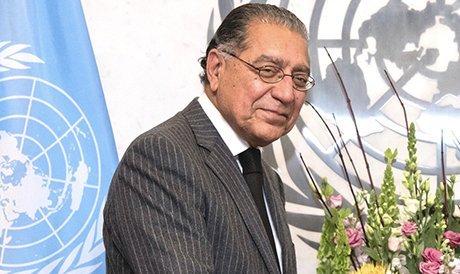Pakistan has proposed limiting or abolishing the veto power of the UN Security Council’s permanent members to enhance its ability to address global challenges. Ambassador Munir Akram, Pakistan’s representative to the UN, stressed that the veto often prevents decisive action by the Council. Speaking at the Inter-Governmental Negotiations (IGN) on Council reform, he called for restricting veto usage or abolishing it altogether.
Ambassador Akram also opposed expanding veto rights to additional states, arguing that this would exacerbate the problem. He highlighted that Pakistan and many Member States reject the creation of new permanent Council members. Instead, the Uniting for Consensus (UfC) group, co-led by Pakistan, proposed a new membership category with longer terms and re-election options.
Reform discussions, ongoing since 2009, have been stalled due to differences between the G-4 nations (India, Brazil, Germany, and Japan), which seek permanent seats, and the UfC group, which opposes such expansion. Ambassador Akram advocated for addressing the imbalance of influence between permanent and non-permanent members. He supported proposals like Liechtenstein’s “veto initiative,” which requires the General Assembly to act on vetoed issues, and suggested adding non-permanent members to counterbalance the influence of the five permanent members.
He also proposed that resolutions involving specific regions should require unanimous or two-thirds approval from members representing those regions, addressing historic inequities faced by Africa and the Global South. Ambassador Akram emphasized that greater regional representation should benefit collective interests, not individual states.
In conclusion, he reaffirmed that the IGN remains the best platform for achieving consensus on Security Council reform.





![logo-1[1]](https://globalnewspakistan.com/wp-content/uploads/2025/01/logo-11-e1737618310315-300x187.png)